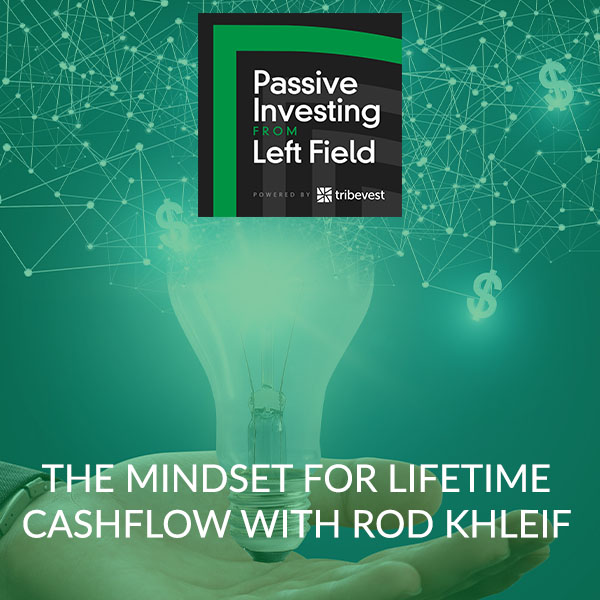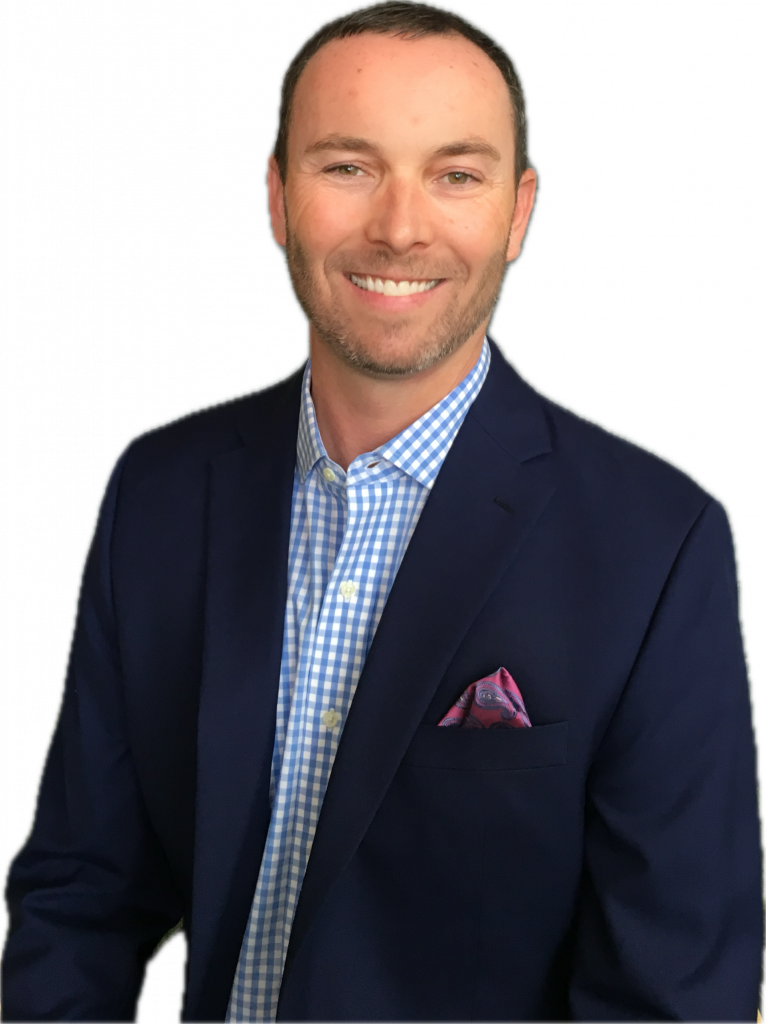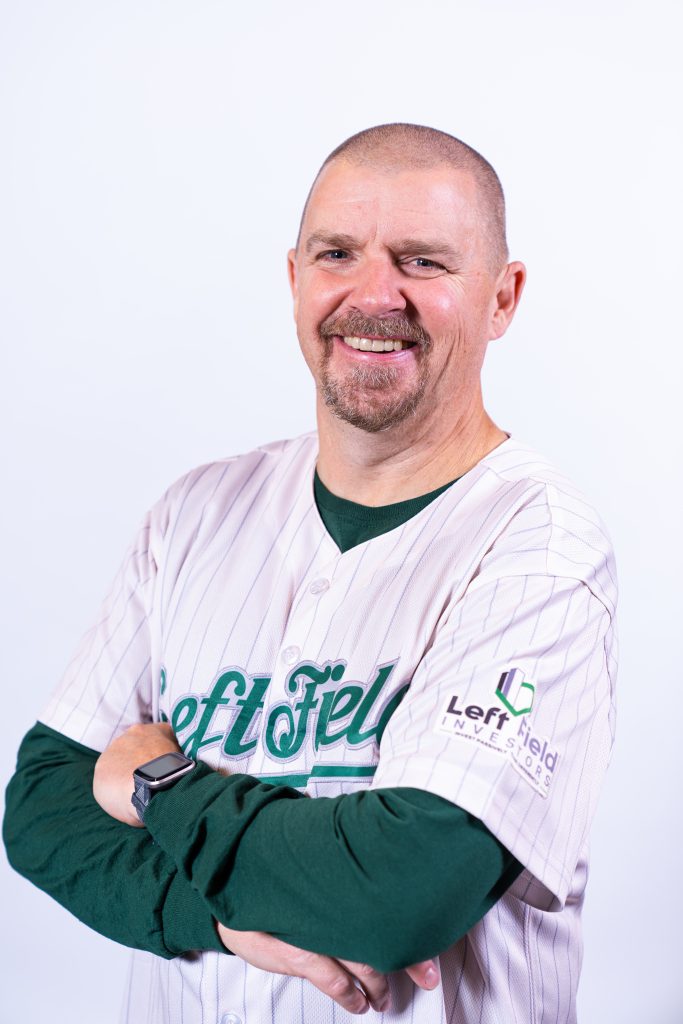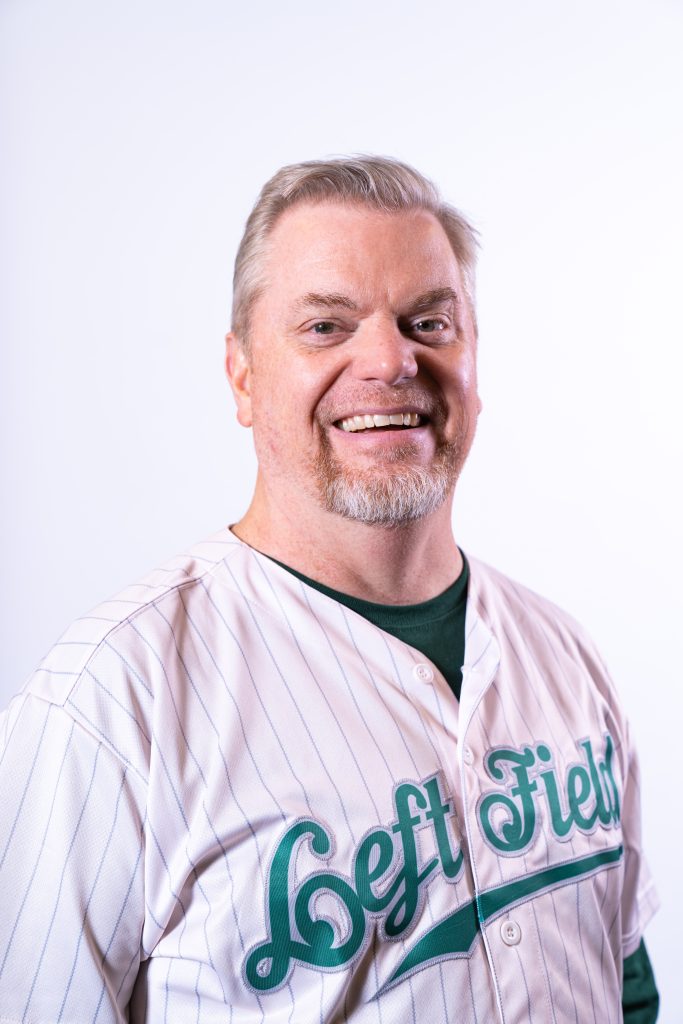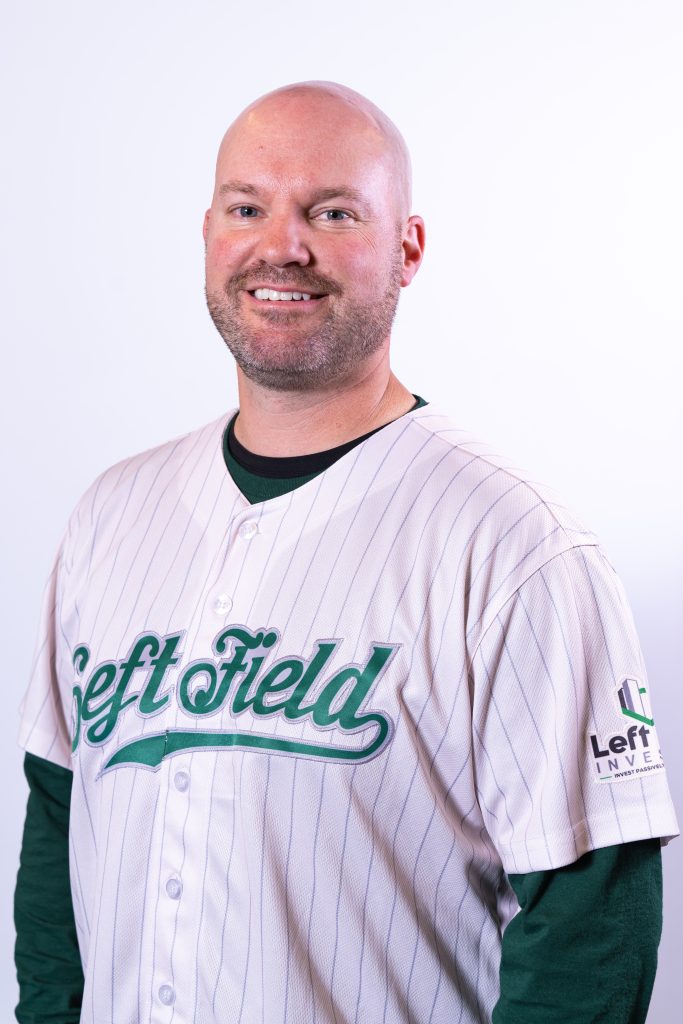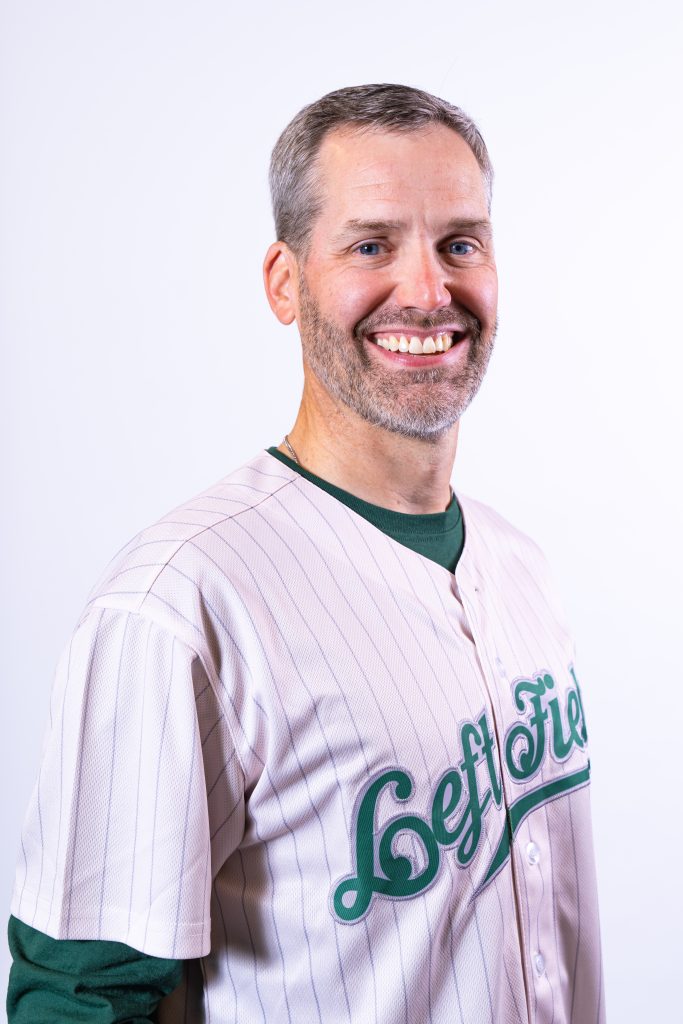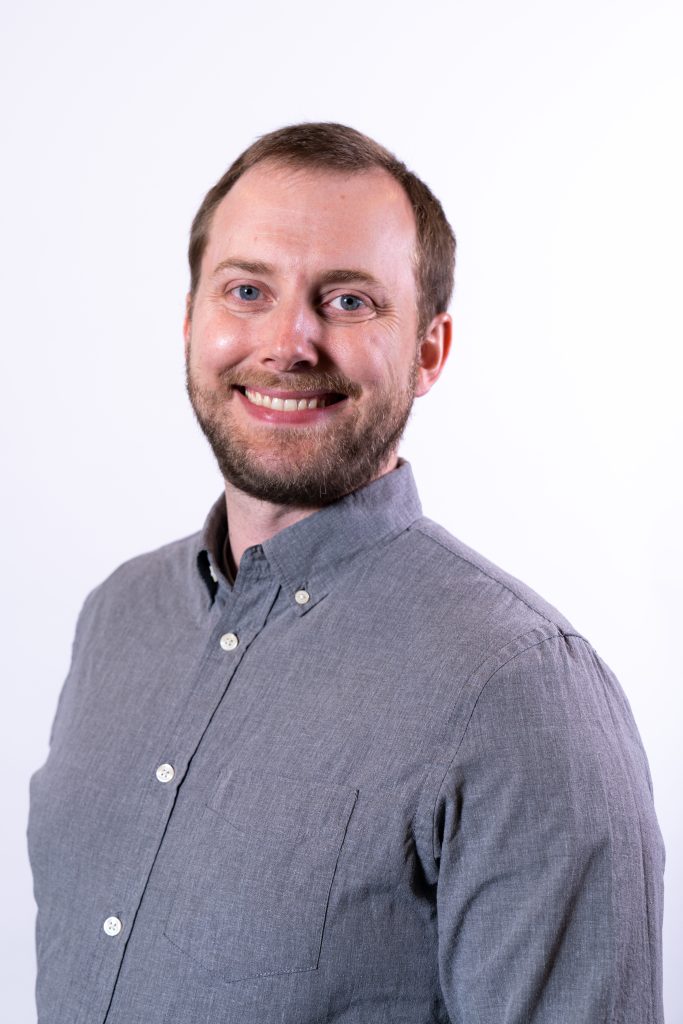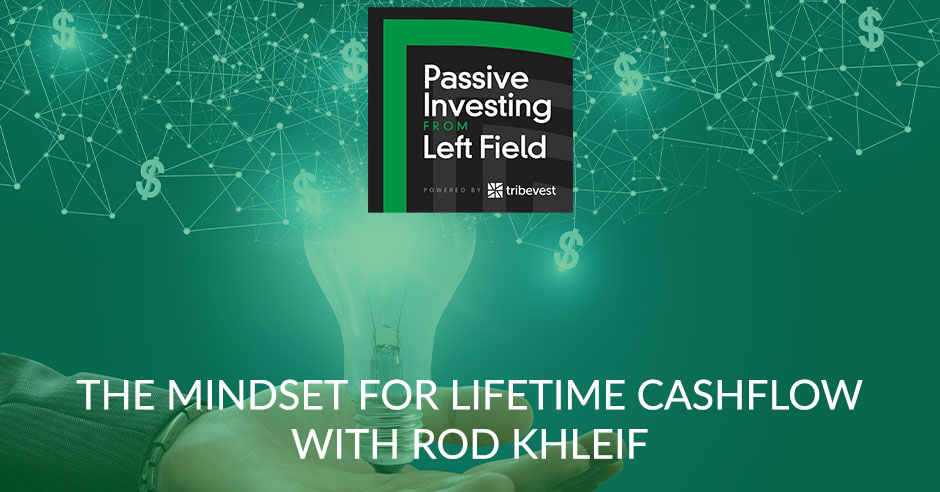
What kind of mindset do you need to achieve lifetime cash flow that can withstand any economic conditions? Rod Khleif sits down with Jim Pfeifer and shares his journey of finding his passion for real estate – from great success followed by massive losses in 2008 to rebuilding his portfolio to focus on cash-flowing multifamily properties while also being able to give back to the community. Rod discusses the challenges of keeping the cash flow coming through Covid, inflation, and other economic conditions and shares his insights on how to make informed decisions as a passive investor including eliminating limiting beliefs and finding the right mindset. Tune in to learn why the proper mindset is critical for investing success!
—
Listen to the podcast here
The Mindset for Lifetime Cashflow with Rod Khleif
I’m very pleased to have Rod Khleif with us. He is a business owner, real estate investor, author, philanthropist and podcaster. He is the host of the Lifetime Cash Flow Through Real Estate Investing podcast, which has an unbelievable 13 million downloads. That’s fantastic. Rod, welcome to Passive Investing from Left Field.
Thanks for having me, Jim. Let’s have some fun.
I’m glad you’re here. I’d like to start with your financial journey. How did you get from wherever you started financially to where you are now?
It’s a long, sorted story, but I’m going to minimize it. I’m an immigrant. I immigrated to this country when I was six years old with my brother Albert. My mother’s Vanya. I was born in the Netherlands, wooden shoes and windmills. We ended up in Denver, Colorado. When we first got there, we struggled. I remember eating expired food. We shopped at an expired food store, drinking powdered milk with our cereal in the morning, which I promise you sounds better than it is because it was cheaper than real milk.
I remember wearing clothes from the Goodwill and the Salvation Army all the way through junior high school until I lied about my age at Burger King so I could finally have some money and buy my own clothes. I’m sure you’ve got an audience that may have started out harder than I did, but I knew I wanted more. Luckily, my mom had an incredible work ethic. She babysat kids so we’d have enough money to eat. She was a bit of an entrepreneur with her babysitting money. She invested in the stock market successfully. She also invested in real estate successfully.
Her first real estate acquisition was the house directly across the street from us when I was fourteen. She paid $30,000 for it. When I was seventeen, she told me she’d made $20,000 in her sleep. I’m like, “What? You made $20,000 and you didn’t do anything? Screw college, mom. I’m getting into real estate.” I got my real estate broker’s license right when I turned eighteen. I was not just an agent. I was a broker, which back then, you could do with education. They got smart now and you need some experience before you can be a broker.
In my first year in real estate, I made about $8,000 to $10,000. My second year, maybe $10,000 to $12,000. This is many years ago, so don’t hold me the exact numbers, but it’s right around that. In my third year, I made over $100,000, which back in 1980 was some pretty decent change. What happened between year 2 and 3 that caused me to 10X my income? What happened was I met a guy. I was dating his daughter then I ended up working for him. He was a broker himself that taught me about the importance of mindset and psychology and how 80% to 90% of your success in anything, certainly business, is mindset and psychology.
It’s not the technical stuff that you, Jim and I talk about on our show. It’s taking action and not letting it be entertainment but taking action with it and pushing through fear. Many of us have fear or limiting beliefs or maybe we’re comfortable. The comfort zone is a warm place and we both know nothing freaking grows there. It’s that mindset and psychology that gets you to push through that. Fast forward to now, I’ve own a couple of thousand houses that I’ve rented long-term. I own thousands of apartment units. In 2006, my net worth went up by $17 million while I slept.
You might say, “Wow.” I said, “Wow.” I got ahead so big, I could barely fit it through a door. I thought I was a freaking real estate God. When that happens, God or the universe will give you a nice little smack. That was 2008 and 2009. I lost everything. I lost $50 million conservatively in 2008 and 2009. What I’m known for talking about on my podcast and at my boot camps is the mindset.
It took that $50 million to lose in the first place but then as importantly or maybe even more importantly, the mindset it took to recover from losing $50 million. As we go into this upcoming recession, which is pretty much a given that we’re heading into a recession, mindset is going to be more important than ever. Don’t get me started on the fake news and the negative news out there. The news isn’t there to inform us. It’s there to startle us and scare us. It’s so important. If you’re listening to Jim, you’re a leader. Now more than ever, the world’s going to need leaders.
As a leader, it’s important that you pay attention to your focus and what you’re focused on. As I said, don’t bring in the negative stuff. I know that’s easy for me to say and it’s hard to do, even with social media and everything now. It’s everywhere. You have to stand guard at your mind, at the door to your mind, and try to bring in the good stuff and mitigate that bad stuff. Whatever you focus on gets larger, both positive or negative.
[bctt tweet=”It’s really taking action and not letting it just be entertainment, but actually taking action with it and pushing through fear.” via=”no”]
When I lost everything in 2008 and 2009, it would have been easy for me to focus on loss and of course, I did for a while. If I hadn’t, I’d have capitalized on that one. I’m going to capitalize on this one that’s coming. I can tell you that. By the way, there is an incredible opportunity coming, just so you know. It could be the opportunity of our lifetime, frankly. I missed out on 2008 and 2009 because I was licking my wounds, but I will not this time.
I’ll tell you about my bootcamp coming up at the end of July. If you can make that, it’s super reasonable and you’ll want to go because if you’re trying to learn this business and invest in deals, like you and I talked about Jim before we started. A lot of people are being super aggressive now. They’ve exceeded plausibility and there’s going to be some reckoning there. It’s super critical that you invest with people that do stress tests and are more conservative rather than aggressive now. I’ve got some resources there I’ll share with your audience in a minute too.
The point is focus is critical. They asked Mother Teresa if she was anti-war when she was alive. They asked her, “Are you anti-war?” She said, “No, I’m pro-peace.” I’ll get people to call me and say, “How do I get out of student loan debt?” I say, “Wrong question. How so much money that the debt’s irrelevant?” It’s super critical now to pay attention to your focus. As things get rough, focus on the things that you want, not what you don’t want, because there’s going to be some hurt. There are going to be some layoffs. It’s going to get a little ugly.
We’ve already seen price concessions and things like that happening and it’s going to continue. The FED has said they’re going to raise the rate five more times. We were able to get a deal for about $44 million right before they raised the rates and they dropped the price to $38 million and we still backed out. You’re going to see that and it’s critical that. Somebody bought it for more than that. It’s critical that you’re conservative now, not aggressive.
I have a few questions. Before I start with some of the questions, can you talk a little bit about how did you recover from losing the $50 million? What are you doing differently? What lessons did you learn along the way that can prepare you for what’s coming now?
Here’s what happened. It was my single-family that pulled me down and I’ll explain why. I had 800 houses and I had several apartment complexes. My houses were along the Gulf Coast of Florida, so two hours North of Sarasota where I live and two hours South and everywhere in between. I’m answering your question, but I’m taking the long route here. What killed me was if I had a maintenance issue at one of my apartment complexes, everything would be the same. The plumbing parts are the same, the HVC parts, the appliance parts, the locks and the windows and all that. You could stockpile parts and a maintenance guy can be in and out in an hour. Let’s say he had to go to one of my houses, my 800 C-class houses.
These were C-class houses. It was A, B, C, and D class. D is the hood. C is a step above the hood. It’s more than that, but it’s working class. That demographic is harder on properties and those properties are older, so they require a lot more maintenance. The maintenance is expensive. If I had to send somebody to one of my houses that’s an hour, hour and a half away, one way. They have to go see what’s wrong, then they have to find a Home Depot or a Lowe’s to get parts. I don’t know about you, Jim, but when Rod tries to fix something in his house. He ends up going to Home Depot more than once.
What took an hour at one of my apartment complexes took all day at one of my 800 houses. That killed my cashflow. Also, Florida has no state income tax, so property taxes are higher. I had properties in wind and flood zones, so higher insurance. Both of those things impact cashflow. By the way, I was only at a 30% loan to value. I always get haters online that say, “You must’ve been over-leveraged.” No, I was not. What killed me was I didn’t pay attention to tenant demographics back then.
If they had a good job and they made money and they didn’t have horrible credit, I’d rent it to them with a deposit. What I came to find out, I knew but didn’t think it was going to be a problem, was a lot of my tenants were jobbers, contractors, plumbers, electricians, drywallers, roofers, painters and that fell off a fricking cliff in 2009, so they didn’t have work. What’s interesting is my portfolio went upside down. It dropped more than 70%. That’s how bad it hit here in Florida.
The reason I bring that up is my multifamily did fine. It pulled back, but if I hadn’t cross-collateralized those apartment buildings with packages of houses, I’d still have those apartment buildings. I thought I was brilliant at saving 50 basis points refinancing a package like that with the apartment complex and the houses. The house has pulled it down. I lost it all, but my point is, they would have survived. I got the lesson there. I started my podcast about a few years ago to tell people, “If you’re going to buy and hold, for God’s sakes, do multifamily. It’s so much safer.” It pulled back about 11%, but it’s the most solid secure asset class there is.

Even with the 2008-2009 crash, rents exceeded 2006 levels within three years of the crash, even though this COVID thing. I thought COVID was going to be the catalyst. You didn’t see retail getting money from the government. You didn’t see the office getting money from the government. Self-storage, industrial, they didn’t get money, but the renters all got money so they could stay in their homes. We’ve got hundreds of thousands of dollars in some of our assets and rent relief paid on behalf of the renters.
It’s a fantastic asset class. I started my podcast to tell people, “If you’re going to buy and hold, for God’s sakes, do multifamily and not single-family.” I used to tell people early on in my show, “I’ll never sell you anything.” I never intended to. I just wanted to add value and now I’m a liar because I’ve got courses and coaching and bootcamps. In fact, let me mention my bootcamp. I’ve got a three-day live event coming up at the end of July. It’s the 29th, 30th and 31st in Denver.
Denver is the hub for United. You can fly there nonstop from anywhere. Let me tell you how you can come for $197 for all three days. It’s not a sales pitch. It’s training. I go through every aspect of the business, from picking a market, evaluating that market, building a team and finding team members. In fact, there’ll be a ton of people there you can connect with for that. This multifamily business is a team sport. Also, going through evaluating a deal, underwriting it and how to put the right financing on it.
Now, debt is very dangerous. You need to be very careful with debt now because most of the deals are bridged debt. It’s an adjustable rate. You have to pay for a big cap if you’re not paying attention to what your refinance rate is and you’re not stress testing that refinance rate. We put 138-unit deal under contract in Hot Springs, Arkansas. Great area. Starbucks there and everything else. We’re paying $54,000 a unit. By the way, if you’re accredited and you want to check that out, it’s going to be a very minimal raise, so it’ll go pretty quick. Text the word PARTNER to 72345 and get on our portal. It may still be available. It’s a very conservative deal.
We stress-tested it at an 8% takeout refinance rate to make sure if it got ugly, if we could still be okay and it would be. It’s super important that people are stress-testing these deals. Anyway, that bootcamp. If you text my name Rod to 72345, remember to use the code Rod Friend because the tickets are ultimately $700, but you can come for $197. If you have any trouble with the ticket, DM me on any social channel. We are very responsive. I have a whole team that helps with that.
$197 for three days of training without a big sales pitch is a no-brainer. Even if you’re a passive investor, why would you give your hard-earned money to someone if you didn’t have some basic understanding of the business? You need to be there. That’s not just real estate. There’s the stock market, anything. Don’t risk your hard-earned money. I’m going to tell you. I mentioned this to Jim before we started. There are some operators out there that are way too aggressive now.
They’re going to have deals that go South and certainly, are not going to hit the returns that they promised. Super important that you have some basic understanding. You’ll leave after the three days, you have a whole lot more than a basic understanding of this business. I hope you’ll come. Text my name Rod to 72345 and remember the code Rod Friend.
One question I have to ask. You say you lost $50 million. How did you get the courage or get back into the real estate? What were you thinking?
I started another company, a litigation support company that I built out of the ashes of that to turn into ultimately a $10 million company with 60 employees, but I hated it. We saved a lot of families’ homes. I helped people that were in foreclosure save their homes. We built law firms in five states and all that. I knew my love is real estate. That’s truly is my passion. It’s my freaking love. I started the show because I knew I wasn’t going to do residential and commercial. I’d have to ask for money. That was one of the other reasons I started the podcast and of course, it’s done that exponentially.
How I did it was I re-associated with what I wanted and why I wanted it. As we go through this cycle, it’s so critical again that you focus on what you want and not what you don’t want. One of the first things in my bootcamp we do is goal setting on steroids because how the heck do you get anything if you don’t know what it is, if you don’t know what it is that you want with clarity and why you want it? You’ve got to have what Napoleon Hill, in his book Think and Grow Rich, calls a burning desire. You’ve got to have that burning desire to push through that fear. To push through any limiting beliefs that you might have.
[bctt tweet=”As a leader, it’s important that you pay attention to your focus and what you’re focused on.” via=”no”]
I immigrated to this country, Jim. I didn’t speak English and I got thrown into school. I found out what bullies were for the first time and I got my butt kicked regularly. I hadn’t learned how to fight back yet. My mom, God bless her, proud Dutch woman that she is, thought it’d be a great idea to send me to school for show and tell in wooden shoes and those leather shorts the Germans wear for Oktoberfest, those lederhosens. I got a butt-kicking again, then the bullies would chase me home.
My mom thought it’d be a great idea to chase him off with a flyswatter, so the next day, butt-kicking again. I came up with this belief system that I wasn’t good enough. Many people have these limiting belief systems. “I’m not good enough. I’m not smart enough. I’m not analytical enough or I’m not old enough, young enough. Whatever.” There’s a reason the acronym for belief systems is BS because 99% of them are.
It’s so important that you’re consciously aware of them because when you look at them with your adult rational mind, they dissipate, but you’ve got to consciously look at them. I used to be afraid to raise my hand in class and now I speak in front of thousands of people a year because I dealt with those limiting beliefs. As I said, I had to re-associate with what I wanted and why I wanted it then I had to make a decision. I could wallow in misery or I could get my butt up and take massive action and make things happen again and I did.
As human beings, we go through these periods in our life where they’re transition or transitional periods. The other thing is getting around the right group of people. I’ll brag for a minute. I have a coaching program as well. My coaching students are somewhere in the 60,000 to 70,000 units owned range. I’ve only been teaching a little a few years. I’m super proud of that. They’re called my warriors. They’re my coaching students. Most of those were done between warriors.
You need to be in a group of people that aren’t afraid of your success. They aren’t going to try to hurt you because they’re jealous. They might be jealous of your success. They might be fearful. That’s very common and they’ll hold you back out of that fear or they’re afraid of being perceived to be less than because of your success. It’s important. Most people default to the people they went to school with or the people they work with. You need to proactively be around people that want more out of life. People that’ll push you and hold you accountable.
Sometimes, I’m going to tell you, those naysayers are your family. I’m going to tell you, love your family but choose your peers. You want to be around people that think what you think is hard is easy. I’ve got a mastermind. It’s called The Multifamily Boardroom. It’s the largest of its type, I believe, in the world. There’s $14 billion in assets represented by the members. In fact, we’re meeting in Houston. We meet three times a year. I formed that because I want to be around people who think what I think is hard is easy.
If you play tennis, do you want to play somebody harder, that’s better than you or somebody that’s worse than you? Obviously, somebody that’s better. Your peer group is super important now. That’s a great reason to come to my bootcamp or something like it, so you’re around people that want more out of life. When I lost it all, I was in Tony Robbins’ Platinum Partnership. It’s a mastermind. There were guys in there and women in there that were thriving through the crash. They’re like, “$50 million, get up your big puss and get back to work.” That’s the people you want to be around. The people that are going to push you and hold you accountable.
There’s a lot that we talk about here in our community about the power of community and why you need it, especially in something like this passive investing where you walk out your front door and neighbors aren’t talking about this. As you said, your family isn’t talking about this, so you got to go find your peers. You got to find people that can help you and help talk about this. I’m all in on community. I want to talk a little bit more about limiting beliefs. I think that’s great the way you were talking about them. Can you tell us a few? What are some limiting beliefs that you see in passive investors? How are they able to overcome those?
By the way, we go through this at my bootcamp. This is not your typical real estate bootcamp. If you come, you will cry, laugh, get in touch with who you are, create an identity statement and we work on fears and limiting beliefs. Here’s the key with limiting beliefs. There are so many different kinds. As I said, I’m not good enough. I’m not strong enough. I’m not analytical enough. I’m not old enough. I’m not young enough. I don’t have enough time. Whatever. The key with the limiting belief is that if you know you have one, you’ve got to stop when it pops up and look at it rationally with your adult mind.
I felt like I wasn’t good enough, but anybody that would reject me, this is what I said to myself, “Anyone that would reject me doesn’t know me. I’ve got a beautiful heart. I’m a gift from God. If they don’t like me, it’s their own crap. It has nothing to do with me.” I had to consciously come to terms with that realizing that it’s the truth. 99.9% of those limiting beliefs are complete crap. They’re BS. You’ve got to drag them out in the daylight consciously and it will start to mitigate them.

Now, it won’t happen overnight. It took several times for me to do it, but that was a real big one for me. I will tell you. I used to ask myself, “How can I show them I’m good enough?” When I discovered that question by doing self-reflection, I probably cried for about 30 minutes. I’m like, “That’s what it was. I had to show the world I was good enough.” I’ll tell you a story about this, Jim. Please know this is not me bragging when I share stuff like this, but I built this $8 million mansion on the beach. Beach on one side. Boats on the backside, just a spectacular home.
I built it to prove to the world I was good enough. I had an epiphany when I was floating in my pool two months after I moved in. I worked for this thing for several years. I’m looking up at this testament to my ego. When I’m floating in the pool one night, two months after I moved in, I got super depressed. That ties into goals, by the way.
I had been focused on me to prove the world I was good enough and that’s the year I started my foundation. I’m blessed to say we fed 110,000 kids for several years. I’ve done tens of thousands of backpacks filled with school supplies to local kids that don’t have the basic supplies for school. I’ve done tens of thousands of teddy bears to give to officers and deputies in their cars in Sarasota and Bradenton if they encounter a child that’s been traumatized. There’s a message in all that.
I’m not bragging here. Please know that. We’ve been taught that we have to achieve to be happy, but if you’re giving back in any fashion, you’re happily achieving. I know it’s a play on words. Tony Robbins calls it the science of achievement versus the art of fulfillment. Achievement is a science. If you want to be good at multifamily passively or actively, for God’s sakes, come to my bootcamp. You’ll get the blueprint. You’ll know how to analyze deals. You’ll know what’s going on, so that’s a science, but fulfillment is an art.
You’ve got to find what juices you and you’re passionate about. For me, it’s kids. Maybe it’s the elderly for you or the environment or animals. Whatever it is. Give back now. Don’t say you’ll do it when you have money or whatever. Do it now. Not only will you feel better and you’ll be fulfilled and you’ll be happier, the success will come faster. You don’t do it for that reason, but that’s the truth of it. That’s the way God works or the universe. Whatever you believe works. Anyway, I went off on a tangent there, but hopefully, I gave value.
That’s great stuff on the mindset and limiting beliefs and all that. I do want to go back to a couple of things you said. One was, you said there’s a recession coming, but also you said incredible opportunity coming. Can you explain what that opportunity is? How has passive investors jumped in and get part of that?
You get involved in the right deals. You’ve got to find the right deals. There will be operators that will be out there that won’t be fearful and won’t be super aggressive. They’ll be waiting for these depressed prices to snap up properties. First of all, as you know and I’m sure you’ve read on this show many times, inflation is not a good thing, but it does not hurt us that are invested in real estate because not only do food and gas go up, rents go up. The point is rents are not going to go down. Historically, they’ve always trended up and that’s going to continue. If operators are able to get assets, I know I’m going to be able to. I’m in a lot of cash now. I hate it because it’s like going down in value every fricking day.
With crisis again comes opportunity and cash is king in a crisis or your ability to access cash. There will be heavily discounted deals. There’ll be deals that banks take back. Banks are not in the business to manage property. They need to unload it. There’ll be incredible opportunities for seasoned operators or operators that know what they’re doing.
If you’re thinking about becoming an operator and not being passive, if you’re going to try to learn this in the midst of the recession, it’ll be too late. You need to learn it now again. I don’t care if you come see me but go to YouTube University, whatever but get up to speed on this business. Start building those relationships now so that you can capitalize on it when it happens. The whole opportunity is going to be discounted properties, Jim. It’ll bounce back.
You’ve mentioned aggressive deals and operators pushing the limits a couple of times. Can you talk about how a passive investor knows if someone’s being aggressive? Are you talking about creases? What are you talking about there?
[bctt tweet=”We’ve been taught that we have to achieve to be happy, but if you’re giving back in any fashion, you’re happily achieving.” via=”no”]
Huge rent is one for sure. Has that operator gone through the 2008 crash? Are they pie in the sky, thinking that’s going to be great forever like I was in 2006 and 2007? I had to get my butt handed to me to recognize that. I think people that went through that crash successfully or unsuccessfully are a lot more conservative than those that haven’t experienced that. I have a free resource. I’ll give it to your audience. It’s a list of questions you should ask a general partner before you get into a deal.
If you want this list, text the word GP Questions to 72345. It’s got questions like why’d you choose this market? This property? Do you own another asset in this market? What’s your business plan for the asset? How do you plan to refinance? Are you going to get a supplement alone? What’s your CapEx budget? Who’s going to do the actual work? Have you ever worked with that management company before? Who’s going to manage the renovation process? What happens if something happens to one of the KPs? There are like 50 questions in here. How do you communicate with the team? What CPA firm are you using? When are distributions made?
There are a bunch of great questions there. If you want it, again, text GP Questions to 72345 and I’ll make sure you get it. As I said earlier, why would you give your hard-earned money to someone you work your butt off for that money to be lazy and not take a few extra steps and learn what it is you’re going to invest in? If you’re going to do IPOs, for God’s sakes, you better study IPOs. If you’re going to invest in franchises, you better study that. If you’re going to invest in multifamily, by God, get your butt to my bootcamp. You’ll be glad you did.
Plus, there’ll be dozens of super successful operators there that you can break bread with to get to know. Instead of watching them on a webinar, you can see what they’re like. I’m going to tell you. You might think this is poofy but intuition is super huge in this business. Your brain is so powerful. There’s a book about this called Blink. In the example in that book is an art expert can look at a painting and they know what to fake but they don’t know why they know it’s a fake.
Our human brains are so powerful that we can subconsciously discern things that are showing us that something’s off. You’ve got that feeling in your gut. If you can come to my bootcamp, you’ll be able to meet these operators. Go have lunch or dinner with them and get to see them face to face. If your gut feels funny, trust it. Your brain can pick up on nuances that you’re not consciously aware of. I’m going to tell you, women are better at this than men. It’s not a sexist comment. It’s the truth. Women have better intuition, but the point is, men can hone that as well. You got to trust it. Every time I’ve ignored it. I’ve had my butt handed to me. Every single time I’ve regretted it.
I think meeting in person and getting your face in front of these syndicators is a great way. Phone calls, Zoom, all that, that’s great. That gives you some information but being in front of them, like you said, break bread with them, you develop connections and that makes business easier. I like that.
You can feel them. Do they feel a little aggressive, sleazy, whatever? Do you connect with them? You’re in bed with them for 3 to 5 years. It’s super important.
You also talked about stress tests on these deals. I understand syndicators. They do their stress tests and sometimes they put that data in the proforma and the executive summary they send out. How does passive investor stress test the deal or check that the stress tests that the syndicator did are reasonable?
Ideally, you’ve got a spreadsheet that you can utilize. By the way, I forgot to mention this. If you pay the $197 for a bootcamp ticket, you get our deal evaluator software. It’s an incredible spreadsheet with videos on how to use it. Very user-friendly. You also get my document library, which costs me tens of thousands of dollars for these documents. Those two things alone are worth ten times more than $197. You get that instantly. You need to know how to fill that thing out and play around with it a little yourself.
You should spend a little time doing your own analysis. If you can get the spreadsheet that the operator used to run their numbers and work that, that’s even better, but a lot of those guys are hesitant to give that. Plug in the numbers yourself. Do a little homework. Do a little market research and look at what is the breakeven on it? What happens if the interest rates goes to X? What exit cap are they using for their analysis? When interest rates go up, cap rates go up.

You want to know the definition of a bad day. Somebody has a cashflowing asset and the cap rates have gone up enough where they try to refinance and they can’t get the value. They need to refinance. That’s a bad day and we’re going to see that. I promise you that’s coming. Bridge debt is the belle of the ball in more than Fannie and Freddie. It’s very dangerous financing, frankly. There are a lot of wildcards out there in that space and its adjustable rate and so on and so forth. There are going to be some casualties. I already know it.
Talking about bridge debt, if a deal has bridged debt, but they also have a rate cap, is that enough to protect or is it not?
It’s not because you got to refinance that debt out. If the interest rates have gone up, you need to proforma the exit strategy, both cap rate and interest rate. I think that’s where a lot of operators are being aggressive. The times of using an exit cap of an additional10 or 20 basis points a year are over. You’re going to have to raise it more than that. Those are the things you need to look at and understand and we go through at my events.
What should passive investors be doing now? You mentioned that you’re holding more cash than you want to. You mentioned the pain of that and I get that but if we have capital, sitting on the sidelines is hard because you’re losing. You don’t want to invest in deals that aren’t going to live up to what you need.
Be more careful now. You’d have to be an idiot not to have had success in the last ten years, honestly. If they’re telling you all their great returns that they had the last few years, most of that was luck. I’m going to tell you, 80%, 90% of that was flat-out luck in the market. I’ll give you an example of this. I partnered with a guy on a deal in Shreveport and I would’ve never did bond in Shreveport. I don’t like the demographics. That’s not a racial comment. The area is very depressed.
It’s 403-unit asset. I got talked into it because I was going to back out. I’m trying to make a long story short, but the seller paid $20 million years ago. We had an under contract for $17,500. I found out about some flooding. I said, “No, we’re out.” They came back and said, “We’ll take $1 million off.” We got it for $16.5 million.” We sold it and we made a lot of money, but that operator had never managed a C-class asset. He had a management company and he was going to manage it. He had 4,000 doors, so I thought he knew what he was doing. When I finally wrestled it away from him eight months in, the income was $98,000 a month.
When we sold it, it was at $280,000. That’s what we had to do with it because he didn’t know what he was doing and there’s a lot of that out there. Even in seasoned operators. I made a mistake and I’m perceived as an expert. I assumed he knew what he was doing. It’s very important that you do your homework. Don’t jump into deals and people raising money so fast now, but I know these deals. There are a lot of scary deals out there now that people aren’t aware are scary. That’s the thing I want to say. Be careful, be prudent and learn the business.
You’re in a multifamily. Are there other asset classes you think will perform well over the next few years? Why are you so bullish on multifamily as well?
As I said, the rents rebounded after the major 2008-2009 crash within three years. They exceeded 2006 levels and people need a place to live. It’s Maslow’s Hierarchy of needs. They’ve got to have shelter. I love mobile home parks as well, which is technically multifamily. I like self-storage as well. I like single-tenant retail if you pay attention to the tenant in that and get a big national well-funded liquid retailer.
My focus is multifamily. I believe in focus. I believe if you dilute your focus, everything suffers. My partner, who has done $6 billion worth of real estate, is an expert in retail as well. We may look at some retail, but now, multifamily is the belle of the ball. There’s going to be an incredible opportunity in this space. Very excited about that.
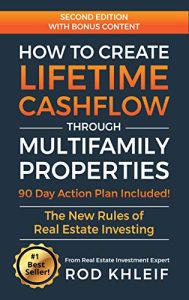
Do you still believe in the value-add opportunities or does that change as the market changes?
There are still value add opportunities, for sure. They’re just harder to find. We’re kissing probably 300 frogs to find a deal.
As a passive investor, what is a question or two you would always ask a sponsor s in the getting-to-know-you process and you’re trying to figure out, “Is this someone I want to invest in?” What are a couple of things that you look for?
I listed some from this resource. Text GP Questions to 72345. You get all 50 of these or however many there are in here. Obviously, you want to ask what the returns are, equity, multiple. How do they stress test? Have they ever given a property back to a lender? Do they do the breakeven occupancy? Have they had any failures? How have they dealt with those failures? Have they ever had a deal go sideways? Have they been full cycle on a deal? How long have they been doing this?
Are there waterfalls? Who are the largest investors in the deal if there are larger investors? Are they raising operating capital? We always do six months of expenses in operating capital. There are operators that don’t do that or they’ll think they can have the cashflow offset some of the CapEx. That’s a recipe for disaster. You’ve got to raise that money. Things like that. There are a few more.
The last question I usually ask on the show is what is a great podcast that you listened to? You can’t use Lifetime Cashflow Through Real Estate Investing but other than your podcast, what’s one that you like to listen to?
I listened to Tim Ferriss and Joe Rogan for contradictory political sentiment, but I will tell you, a little quick mention on Tim Ferris. I talk about focus, how focus is so critical and managing your focus. Most successful people on the planet have the best focus. Tim Ferris deconstructs some of the best. I get excited about my 13 million downloads and he gets that a week.
He deconstructs some of the best performers in the world and the different genres like actors like Jamie Foxx, Arnold Schwarzenegger, Hugh Jackman, Ed Norton and Olympic athletes like Michael Phelps, billionaires like Ray Dalio. I started to hear a pattern. Many of these people meditate. What does meditation enhance? Focus. I thought that was insightful when I realized that these people pay attention to managing their focus.
Give us the info for the bootcamp and then tell us, if people want to connect with you, what’s the best way to do that?
Go to RodsLinks.com. I have free books there. I’ve got so much. All my social media connections are there. By the way, I have a goal-setting workshop there that I did. It’s an hour and a half with a goal setting guide. If you can’t make my bootcamp, do that with your spouse. Do it with your kids that are above ten years old. It’s so powerful. There’s music. It’s professionally done. Download the free guide. Do the goal setting. It’s super powerful, so important, but the bootcamp is RodInDenver.com or text my name Rod to 72345. I hope you’ll come listen to my podcast called Lifetime Cashflow Through Real Estate Investing.
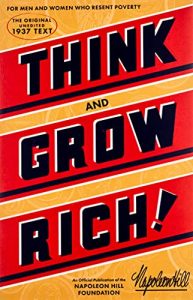
I do a clip every week about mindset. It’s five minutes called Own Your Power. You must be interested in multifamily if you’re on this show. You give me five minutes a week, I will juice you. It’s Lifetime Cashflow Through Real Estate Investing. There are hundreds of them there and I do one every week. I’m proud of them. I know that’s the biggest reason the podcast has been such a success because people don’t remember what you said but they remember how you made them feel and I’ll make you feel.
I love those interview episodes too. The short episodes are a great list during the week as well.
Thank you. I appreciate that.
Thank you very much, Rod, for being on the show. We appreciate getting to know you a little bit. We’ll check out the bootcamp and those sponsor questions.
Thanks for having me.
—
That was a fun conversation with Rod. A lot about mindset. A little bit about investing, but mindset is so important. I liked a lot of the stuff he said. Take action because a lot of us, especially now with the recession possibly coming, interest rates are high, inflation. We’re hoarding cash maybe and a little bit nervous to take action, but you still have to take action regardless of the situation. Regardless of what the market is like, you still need to take action. You need to maybe take smarter action than we have over the past few years, as Rod said. Many people, most people, all people probably made money. It’s not going to be like that going forward.
Taking action doesn’t mean do anything. Take smart action. He also said that what you focus on gets larger. This goes if you’re focusing on the good stuff or the bad stuff. It’s going to get larger. That’s great advice. Focus on something good. The good will get bigger. If you focus on something bad or negative, the same thing will happen. It will get bigger. Take your focus off the negative. Move it to the positive. Easy to say, hard to do.
He used a great example of debt. You change your focus. If you have a lot of college debt, change the focus from how do I eliminate that debt to how do I make so much money that that debt becomes inconsequential? It’s hard to do but if you could change that mindset, I think that has a huge effect on everything else that you do. I liked that example.
He talked about you’ve got to get around the right people. You hear me talk and preach and all the time about the value and the power of community. Rod said it. You’ve got to get around the right people. What he said also was love your family, choose your peers and that makes sense. As I talk about, sometimes you walk out your front door, you’re not going to be able to chat with a neighbor about syndication investing in real estate. They’re going to think you’re nuts.
They might not be the right people. Go find your community. You can still hang out with your neighbors on the weekends. You can still love your family, but maybe you’re not talking finance with them. Maybe you’re talking finance or the people who you found in your community who know about finance and you can share knowledge. You’re always looking for someone who knows more than you, as he said, a better tennis player than you, so you will get challenged. That’s what you need to do with your community as well.
Another thing, give back now. Don’t wait until success hits you. I know I get in that where you’re like, “I’ll be very giving and give my resources when I have more resources.” If you start now, you’ll be much better off and positive things will happen to you. Success will come to you. If you give, you get. It sounds corny. It doesn’t sound realistic or real, but I’ve seen it. The more I give to the community of Left Field Investors, the more I get back. I’ve gotten more from this community than anyone. I know that for a fact because I’ve talked to so many of you and I’ve learned so much.
I am so thankful for it, but that comes giving to the community. You get back from the community. That, I think, translates into all aspects of life. This was a unique episode. You can tell Rod is passionate about mindset and about training you on your focus and things like that. We had some great lines that I will remember. Love your family. Choose your peers. What you focus on gets larger. I love those. That’s it for now. We’ll see you next time in the Left Field.
Important Links
- Rod Khleif
- Lifetime Cash Flow Through Real Estate Investing – Apple Podcast
- Think and Grow Rich
- Blink
- RodsLinks.com
- RodInDenver.com
- The Tim Ferriss Podcast
- Joe Rogan podcast
About Rod Khleif
 Rod Khleif is an entrepreneur, real estate investor, multiple business owner, author, mentor, and community philanthropist who is passionate about business, life, success, and giving back. As one of the country’s top real estate trainers, Rod has personally owned and managed over 2,000 properties. Rod is Host of the Top-Ranked iTunes Real Estate Podcast which has been downloaded more than 12,000,000 times – “The Lifetime Cash Flow Through Real Estate Investing Podcast.” Rod is the author of “How to Create Lifetime Cash Flow Through Multifamily Properties” considered to be an essential “textbook” for aspiring multifamily investors.
Rod Khleif is an entrepreneur, real estate investor, multiple business owner, author, mentor, and community philanthropist who is passionate about business, life, success, and giving back. As one of the country’s top real estate trainers, Rod has personally owned and managed over 2,000 properties. Rod is Host of the Top-Ranked iTunes Real Estate Podcast which has been downloaded more than 12,000,000 times – “The Lifetime Cash Flow Through Real Estate Investing Podcast.” Rod is the author of “How to Create Lifetime Cash Flow Through Multifamily Properties” considered to be an essential “textbook” for aspiring multifamily investors.
As an accomplished entrepreneur, Rod has built several successful multi-million dollar businesses. As a community philanthropist, Rod founded and directs The Tiny Hands Foundation, which has benefited more than 110,000 community children and families in need. Rod has combined his passion for real estate investing and business development coaching with his personal philosophy of goal setting, envisioning, and manifesting success to become one of America’s top real estate investment and business development trainers.
Our sponsor, Tribevest provides the easiest way to form, fund, and manage your Investor Tribe with people you know, like, and trust. Tribevest is the Investor Tribe management platform of choice for Jim Pfeifer and the Left Field Investors’ Community.
Tribevest is a strategic partner and sponsor of Passive Investing from Left Field.

